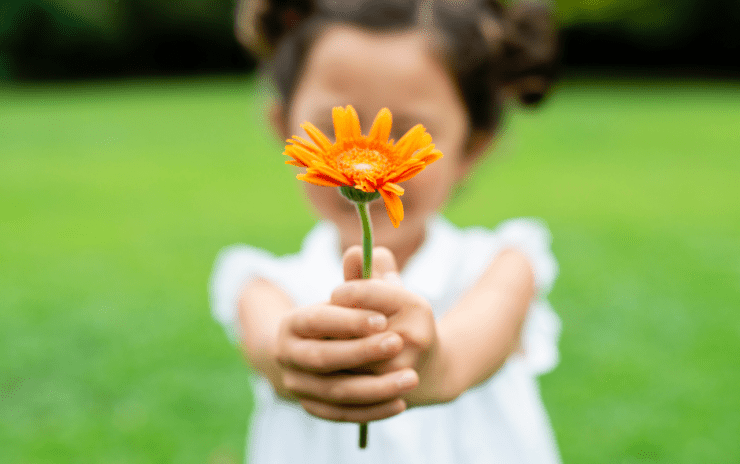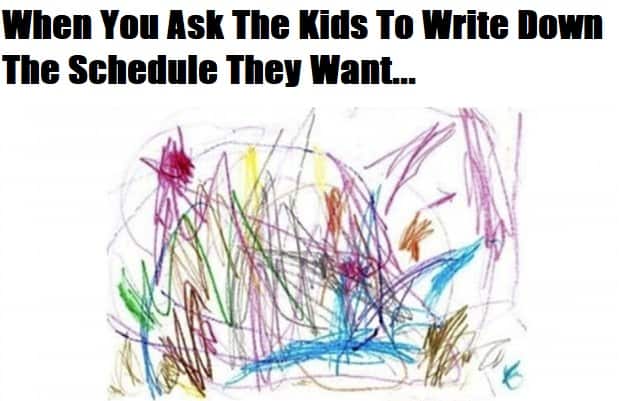Learning to be grateful can be difficult for some children. The ability to feel grateful is often seen as a part of the human experience that is only attained by adults, but this need not be true.
By following these steps, parents will discover how easy it can be to help their kids express gratitude for all they have in life.
Forgive Your Child
If you never stop to count your blessings, then there is no reason for your child to do it either. Showing gratitude is often nothing more than a by-product of noticing the good things in life and having enough wisdom to appreciate them.
This starts with parents who live their lives this way and then pass it on to the next generation.
Guide Your Child in How to Express Gratitude
One of the worst things you can do is expect a child to show gratitude when they feel they have been wronged. If this happens, then there is no way for them to see what giving thanks really means. Instead, encourage them to write a thank you note or card to show their appreciation.
Parents should also teach kids to say please and thank-you whenever they ask for something, even if it’s just a glass of water. This shows children the difference between demanding things from people instead of asking for them nicely.
Allow Your Child to Choose how To Express Gratitude Within His or Her Own Abilities.
If your child expresses a feeling of ingratitude, do not be afraid to ask why they feel this way. You may discover that their lack of gratitude is due to some unfair treatment by another person or perhaps some other situation you are unaware of currently affecting them.
Remember that it is impossible to overcome the problem at hand until you have identified the source of the issue.
Find Ways to Show Your Gratitude to Your Child.
One simple way is to buy a journal for your child and encourage them to write down what they are grateful for every day. This also creates a daily record of their growth over time, which can be a great reminder of all they have experienced.
Encourage your child to express their gratitude for the things they take for granted such as food, shelter, and clothing by donating some or all of it. If your child enjoys running, offer to let them run a marathon and keep all the money they raise for charity.
Of course, this should not be an expectation placed upon them, but a gift from the heart for their own good will.
Be a Blessing in the Community
Teach your child to be a blessing in your community by volunteering his or her time and effort to help others less fortunate than themselves. If you feel that they aren’t quite ready to do this just yet, then talk about what it means to have a generous spirit and how others will feel if they are generous to them.
Go on a walk with your child and take the time to point out all of the amazing things around them that most people take for granted almost every day. Discuss each detail as you enjoy the simple beauty Mother Nature offers everyone who takes a moment to stop and reflect upon it all.
Create a List of Things You Need to Express Your Gratitude For
This is often a great way to discover all the joys in life that we take for granted or don’t pay attention to anymore. Once you have done this, write it down on a piece of paper and put it somewhere as an ongoing reminder of what you have to be grateful for.
Tell your child about all the different things people are able to accomplish if they just try hard enough, which is another way of showing them how much potential they have to change their lives for the better.
If your child feels that their life is helpless or stuck in a rut, then they are less likely to feel grateful about anything. Show your child ways that they can achieve any goal or dream they may have for themselves, which helps them see that gratitude is not just a feeling but an action as well.
Teach the Importance of Being Able to Laugh at Life
When kids begin seeing the funny side of life, they are able to focus more on what’s important and how many of the everyday annoyances do not really matter in the long run. Do this by pretending to be silly and laughing at all the little things that used to get on your nerves.
Thank Others for The Help They Offer
This helps them learn that not everyone is just looking to help themselves and that most people do care about others.
When your child finds themselves taking something for granted, call them out on it and let them know that if they can’t appreciate what they have then nobody else will either. This puts the responsibility back on their shoulders to not only take care of their needs but also someone else’s too.
Recognize what you have done in the past and how it has affected others around you, which helps your child understand that even though they cannot always see the results, good deeds always come back to you in some way or another.
Make a Gratitude Box
Create a gratitude box that your child can add notes from others they have been grateful for into when they feel like showing gratitude for someone else’s hard work. This is a great way of teaching them how others feel when they are acknowledged and shown appreciation too.
Gratitude is the key to unlocking our potential. It’s important for kids to understand that gratitude can be an action — it doesn’t just have to be a feeling. Showing appreciation, giving back, and being generous are all ways of practicing gratitude in your day-to-day life.





